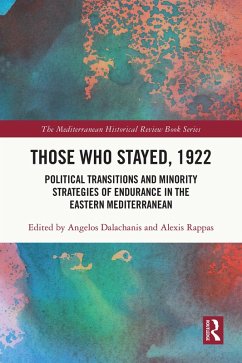While scholarship has thoroughly documented the demographic changes that accompanied the post-Ottoman transition, this volume focuses on a less explored dimension: the agency of those labeled as minorities. It examines how these communities navigated their new reality within emerging nation-states or League of Nations mandates. Adopting a broad and situational understanding of "minority," it includes both legally defined groups and those marginalized in practice, such as Muslims in Western Thrace, Christians in Istanbul, Armenians in Jerusalem, Muslims in Serbia, and Jews in Salonica.
The volume uses diverse methodologies-archival research, network analysis, microhistory, and translocal perspectives - to investigate the lived experiences of entrenched minorities. It offers new insights into both lesser-known and familiar minority groups, while engaging critically with existing literature. By emphasizing these groups' strategies and resilience, the volume challenges narratives dominated by violence and nostalgia, offering a more nuanced understanding of post-1922 Eastern Mediterranean history. It will appeal not only to scholars of minority studies but to anyone interested in the region's modern past.
Dieser Download kann aus rechtlichen Gründen nur mit Rechnungsadresse in A, B, BG, CY, CZ, D, DK, EW, E, FIN, F, GR, HR, H, IRL, I, LT, L, LR, M, NL, PL, P, R, S, SLO, SK ausgeliefert werden.









